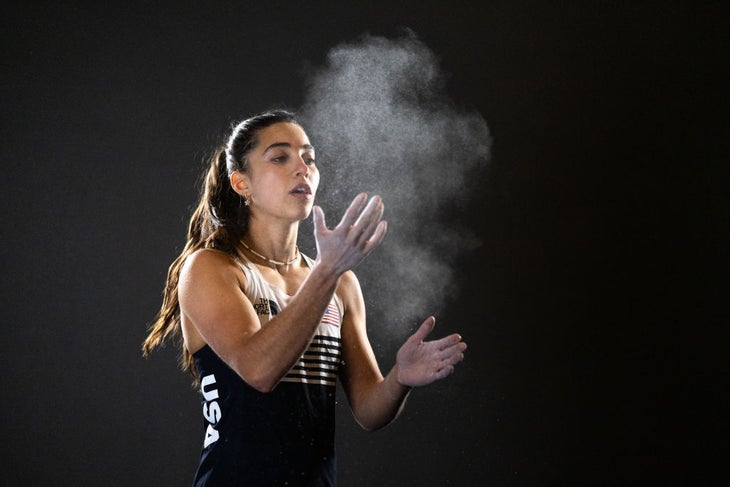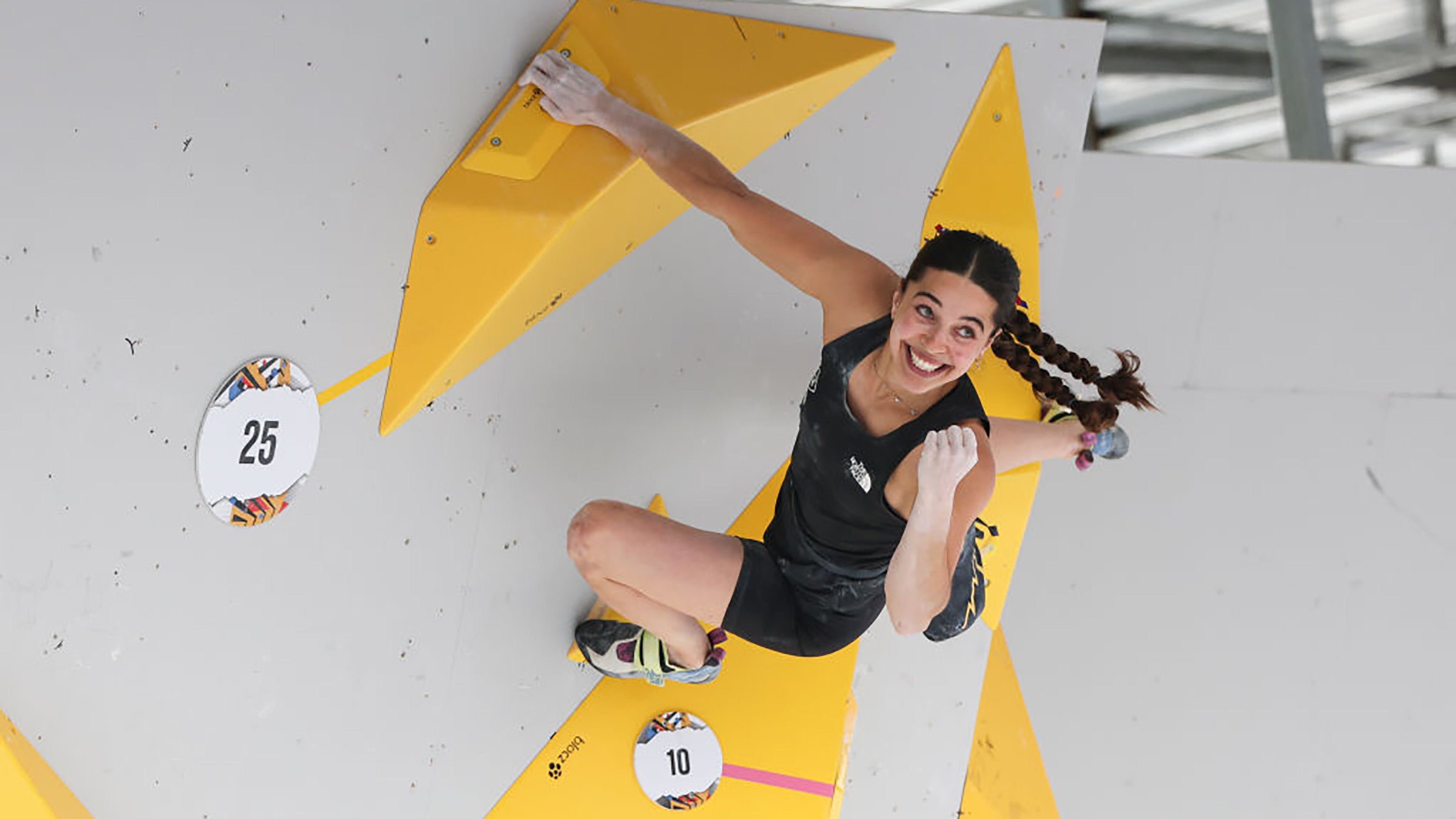Four years ago, Brooke Raboutou became the to qualify for the discipline’s Olympic debut at the Tokyo Games.
Raboutou and 20 other women went head to head in a controversial triple-combined event, vying for a single gold medal based on an aggregate score from three different events: speed, bouldering, and lead. While bouldering and lead climbing share some characteristics—a focus on strength and the technical difficulty of climbing movement—speed climbing is a sport all its own, and requires a very different skillset. The format . Raboutou had a strong showing in bouldering, coming second behind Slovenian Janja Garnbret, who eventually won the gold medal. But she struggled in the other two disciplines and eventually finished fifth.
Now, Raboutou is back, and she hopes to grab a medal in sport climbing at the Paris Olympics. The climbing events run August 5-10.
Things are different for Raboutou and the other climbers whose sights are set on the Olympics. For starters, the International Olympic Committee has dramatically changed the format: speed climbing a stand-alone medal event in Paris. A second set of medals will be awarded based off of combined scores in the bouldering and lead competitions. We spoke with Raboutou about her ambitions in Paris, the atmosphere at the world’s biggest stage, and what the new format means for the world’s best competitive sport climbers.

OUTSIDE: What is your opinion of the new Olympic competition format?
I think it’s a great change, and I don’t know anyone who would argue it isn’t. When I competed in Tokyo, it was all three disciplines combined into one. That wasn’t only grueling physically, but the way it worked out for scoring wasn’t really fair. It was ranking-based. I think I can say none of us would have chosen to compete in all three events at once. The combined format did favor some competitors over others, but in general, Speed is a specialty that deserves its own medals.
Hopefully in the future Boulder and Lead will also be separate and then there will be a Combined event as well. But still, those are much more similar disciplines and require similar skills. A lot of us competitors do specialize in both of those, but not all three. I just think it makes a lot more sense for our sport and gives the opportunity for speed climbers to go to the Olympics and have their own medals. Some people are still annoyed that Boulder and Lead are combined. But this is only our second Games, so I’m grateful for anything we can get. That first split is incredible, and hopefully we can gain more traction and opportunities for more medal sets in the future that will allow more specialization. But I honestly do like the combined approach, so I hope we can have both individual and combined in the future. I’m just trying to take it as it comes and be grateful that we’re on this big stage.
What did your training look like in the lead up to Paris?
I’ll give you the basics. I climb five days a week, usually two days on, one day off, sometimes three days on, one or two days off. My training is planned, but it’s also adaptable. I train with a coach here who I’ve worked with for four years, Chris Danielson, who’s a big part of my growth. He’s a huge mentor to me. A lot of the training is on the wall, climbing, but I do strength training as well, weights for power and maintenance. And then I do a lot of mental work.
Mental work, like visualization or medication?
Both. Meditation just for my own well-being, and then visualization—working with sports psychologists and practicing imagery tactics to use throughout training and competition. That’s both visualization of the climbs, but also different cues to help get me in the present moment, focused on myself, and in a good mental place.
How does the atmosphere of the Olympics differ from that at major climbing events like the World Cup?
I remember having a moment of realization at the Games because it did feel so different in some ways. Like This is crazy. This is climbing’s first Olympics, and there are only 20 of us on the mat. So I had that realization, but still, we’re just climbing. This is the same game that we get to do every day, at all the other competitions.
It’s more a perception change than an actual change, which to me is helpful. I like to look at it that way. It’s an exciting opportunity, how big this is, but at the end of the day, nothing has changed. We’re still doing what we love out there on the mats. So I don’t know. I would say yes and no. It is different for sure, but a lot of that is just perception as well, and attention toward our sport, less real internal change or physical change.
What draws you to competitive climbing?
I love climbing just for itself, for the movement. That’s something that drives me and I’m impassioned by, and I find that both indoors and outdoors. But I’ve really fallen in love with competition for the mental growth that it takes. Learning about myself through competition, through challenges, through success, it’s been really eye-opening and purposeful for me.
To be a high-level competitor and get to experience this world and those extremes, and have that time for myself to reflect on how I show up. I’ve learned so much through competition climbing about my own development. That’s something I’m really grateful for and love on a bigger picture perspective. Internally, I love the movement of climbing, and I love the feelings it gives me and the confidence it gives me in the way I’m able to express myself.
This interview was edited for space and clarity.


